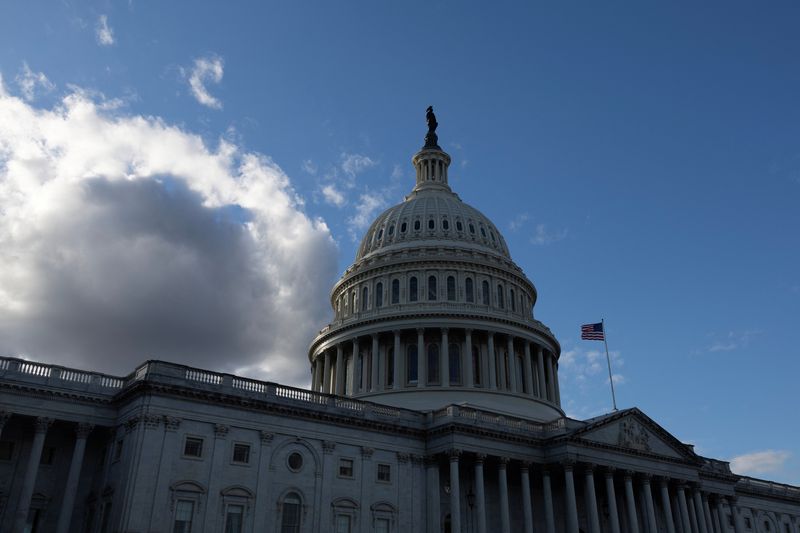By Timothy Gardner
WASHINGTON (Reuters) - U.S. lawmakers have tucked sanctions on Iran's oil exports in the House of Representatives' aid package for Ukraine, Israel and the Indo-Pacific after Tehran's missile and drone strike on Israel last weekend.
If passed through both the House and Senate and signed by President Joe Biden and then implemented and enforced, the measures could eventually impact Iran's oil exports. Exactly when is unclear since the measures are still being debated and give the U.S. president waiver powers.
The House could vote on the package as soon Saturday, Republican Speaker Mike Johnson said.
Despite a wide range of existing U.S. sanctions on Iran's oil exports over its nuclear program, the shipments have increased amid demand for the oil from China and as networks outside of the U.S. financial system deal in the oil.
UKRAINE AID PACKAGE
The package, which includes billions of dollars of aid for Ukraine, Israel and the Indo-Pacific, contains several measures on Iran sanctions. Two "could explicitly impact Iranian petroleum exports if implemented and enforced", according to ClearView Energy Partners, a non-partisan research group.
The first, the Stop Harboring Iranian Petroleum Act, or SHIP, would impose sanctions on ports, vessels and refineries that "knowingly engage" in shipping, transfers, transactions and processing of Iranian crude oil and products, ClearView said. Ships that violate the ban would be barred from U.S. ports for two years.
However, the bill includes 180-day waivers that Biden could invoke that would avert oil price spikes.
The package also contains an Iran-China measure that would expand secondary sanctions on Iranian oil so that they apply to any transaction by a Chinese financial institution involving purchases of petroleum from Iran. The sanctions would be triggered by annual assessments and run through 2029.
Again, however, the U.S. president could likely apply renewable waivers of the sanctions.
OTHER MEASURES IN AID PACKAGE
Another measure would impose sanctions on the office of Iran's supreme leader Ayatollah Ali Khamenei, related officials and foundations and conglomerates overseen by the office. The measure could, "depending on how broadly it is interpreted", include Iran’s charitable trusts and petroleum businesses, according to ClearView.
Another measure in the package requires reports on the holdings and non-Iranian financial accounts of 20 Iranian leaders and the leaders of groups supported by Iran, including Hamas and Hezbollah, and mandates closure of any U.S. accounts. That could provoke retaliation by sanctioned parties that could affect the petroleum business, according to ClearView.

WHAT IF THE AID BILL FAILS?
If the package fails due to fierce objections from right wing Republicans or other reasons, some of the measures in it could still pass both chambers of Congress as part of other legislative packages later in the year, ClearView said. Those include the SHIP measure and the Iran-China measure, it said.